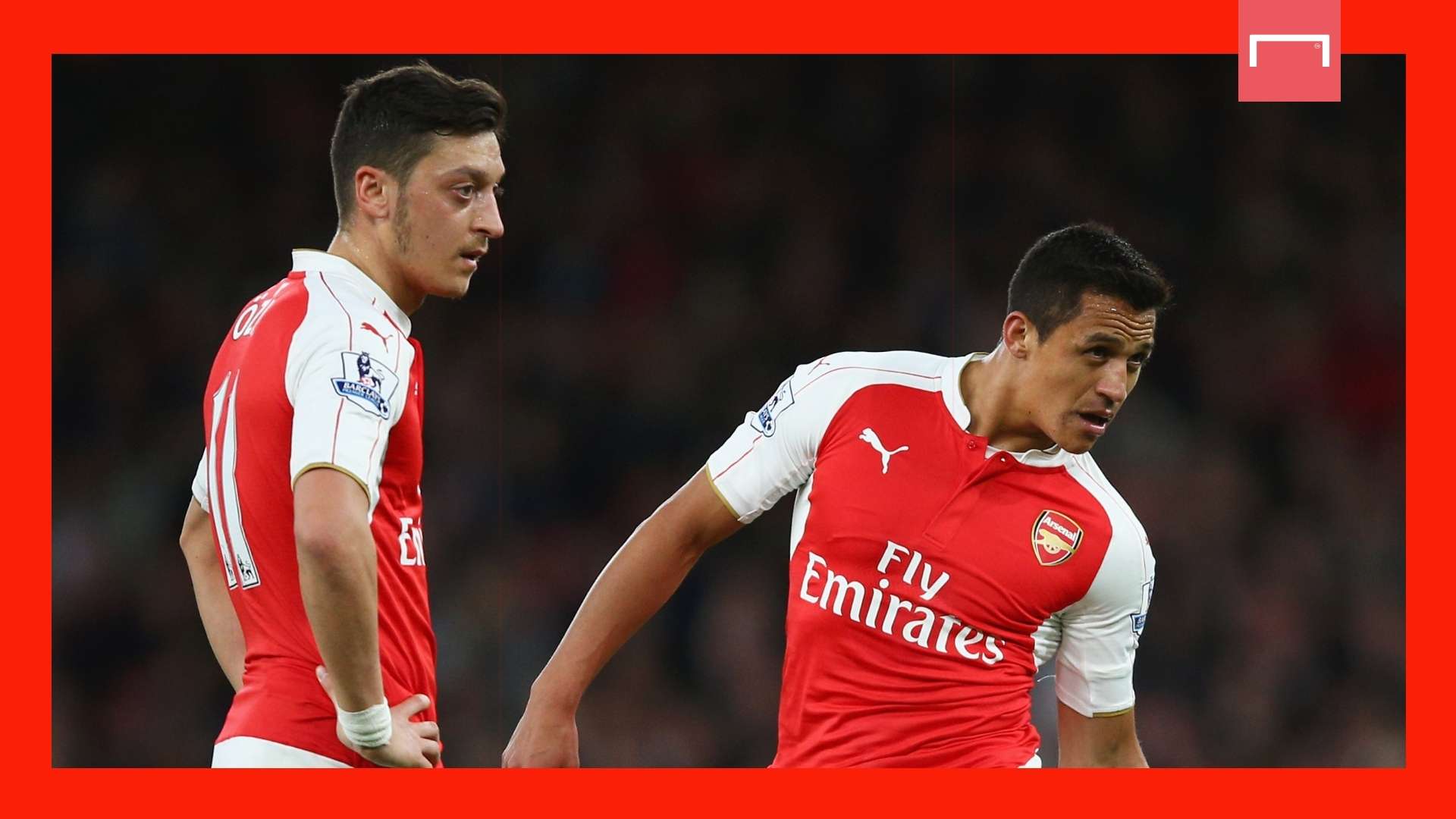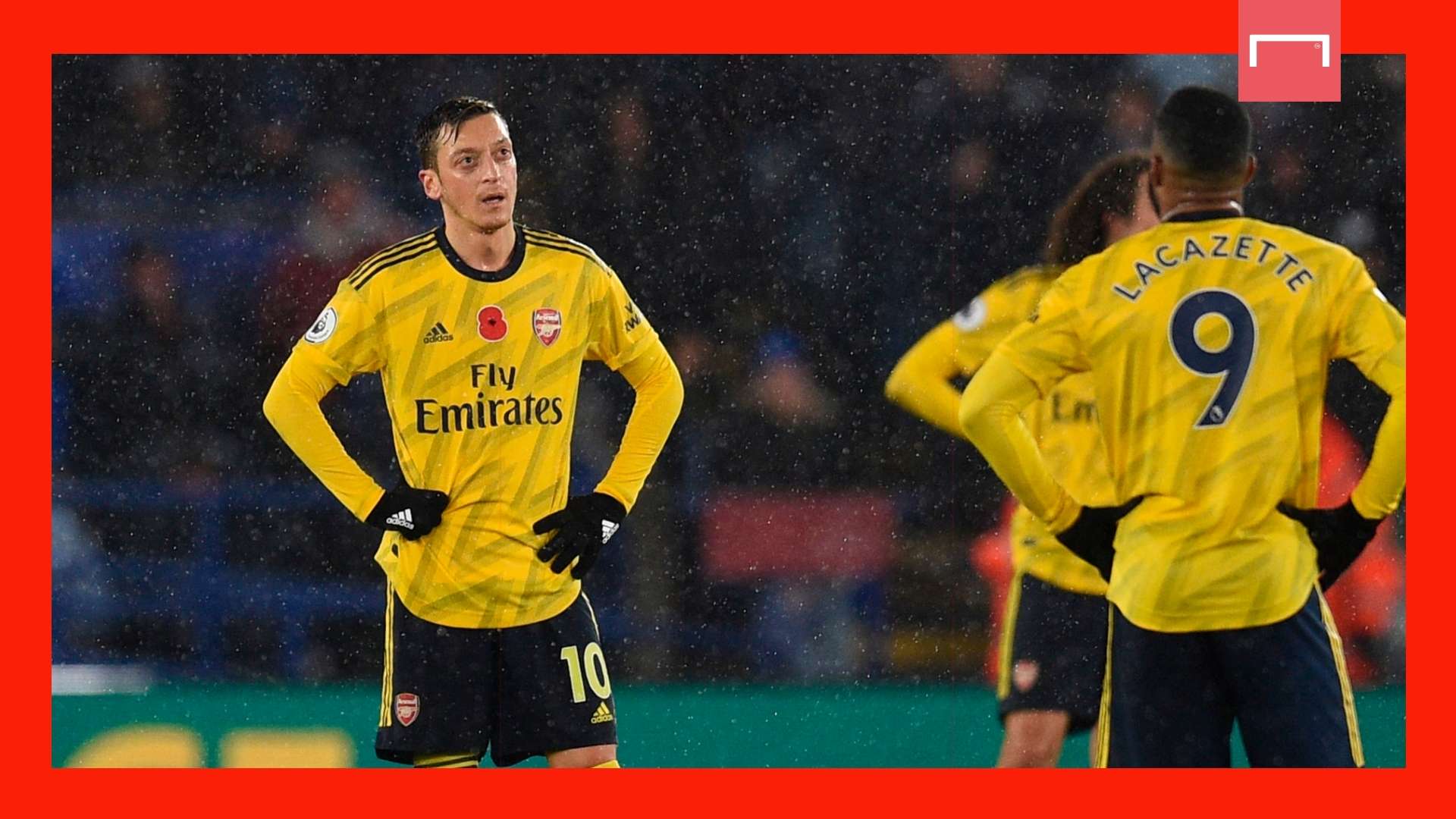It is somewhat fitting that in what has proved to be Mesut Ozil’s final game for Arsenal, he was on hand to set up the winning goal.
As supporters filed away from the Emirates Stadium after that 2-1 success against West Ham last March, no-one would have predicted that the cushioned header that allowed Alexandre Lacazette to fire home would be the last of the German’s 54 assists in the Premier League.
Ozil seemed to be enjoying his football again under Mikel Arteta. He had started every single one of the 10 games that the Spaniard had overseen in the league having been appointed as Unai Emery’s successor.
It seemed certain that would continue once football returned after its coronavirus-enforced suspension in June.
But when Arsenal did return, Ozil did not. And he has not been back since.
Now his time at Arsenal has come to a premature end. After seven-and-a-half years with the Gunners, Ozil is swapping north London for Istanbul as he prepares to join his boyhood club Fenerbahce on a free transfer.
There was no big goodbye, no big send-off. The man who arrived in 2013 amid such fanfare after that record breaking move from Real Madrid, left out the backdoor - with an agreement reached to end his £350,000-a-week contract six months early.
It is sad that it has all ended like this, but it had to end. And now that it has, the relief is palpable.
Arsenal and Ozil seemed like a marriage made in heaven, and for a time it was.
His £43 million ($67m) arrival from Real Madrid signalled the end of the austerity period following the move from Highbury to the Emirates, while it coincided with the end of the trophyless run that had stretched for nine long years.
Ozil won the FA Cup in his first season in England and Arsenal went on to win it a further three times during his stay, with the German producing sparkling displays in the 2015 and 2017 finals.
But as solid as the marriage initially seemed, the divorce has been messy. From the moment Arsene Wenger left in the summer 2018, the focus at Arsenal has been to move Ozil on, with the club viewing the contract they handed him earlier that year as a millstone around their neck.
They tried and failed to move him on when Emery was in charge, but now they have got their wish. Ozil had been determined to see out his deal and leave on a free transfer at the end of the season, but Arteta’s decision for "football reasons" not even to register him in his Premier League squad finally saw that stance change.
The move to Fenerbahce brings to an end what has turned into an ugly saga in recent times, one that has dominated the news agenda even though the 32-year-old has not even been on the pitch.
And that is why it was so important that an agreement was reached this month. It has been clear for some time that Ozil’s story at Arsenal has been closed, that no new chapters were going to be written.
So it was best for all sides that negotiations over ending his contract early came to a successful conclusion - no good was going to come from the player sticking around until the end of the season.
 Getty/Goal
Getty/Goal
Now Arsenal can move on and Ozil can get back to doing what he does best, playing football and creating goals.
Ozil made 184 Premier League appearances for Arsenal following his move from Madrid, scoring 33 goals and setting up a further 54.
He has undoubtedly been one of the most creative players the league has ever seen, with Opta stats showing he averages an assist every 283 minutes in the top flight.
The 2015-16 campaign was certainly his finest, with 19 assists and six goals in 35 league matches. He created 146 chances for his team-mates in that campaign, a record that still stands to this day.
Ozil at his best was a wonderful sight, and there were plenty of highlights during his stay in north London. From the sumptuous first touch on his debut at Sunderland which led to an assist for Oliver Giroud, to his individual goal against Ludogorets and his performances as Manchester United and Chelsea were blown away at the Emirates five seasons ago.
There was the outrageous control that brought a stunned silence over Anfield in 2017, the flick for Giroud’s goal against Aston Villa in 2015 and that wonderful volley against Newcastle.
His partnership with Alexis Sanchez lit up Arsenal for a couple of years, and the club’s failure to add an outfield player to the squad in the 2015 summer transfer window after the two successive FA Cup wins remains one of the most mystifying decisions in recent memory.
The progress that had been made in the two years since Ozil’s arrival had been vast and Sanchez had proven himself as one of the Premier League’s best players in his debut season.
 Getty/Goal
Getty/Goal
That was the time for Arsenal to kick on and build around their two world-class stars, but they choose to stand still. They ended that season as runners-up to shock title winners Leicester City despite Ozil’s record breaking 19 assists. A golden chance to win the title had been wasted, and they have not had a sniff since.
Ozil deserved better that season, but his time at Arsenal should not be viewed through red-tinted glasses.
As good as he was at times, he could also be equally as disappointing. Time and time again he would underperform in big games, especially away from home.
His talent was undeniable, but his determination to make the best of it can certainly be called into question.
There is no doubt he could have done more in north London. He is one of the most naturally gifted players the club has ever had, but there is certainly an argument that he did not do enough with it, both on a match day and at the training ground.
“I find it really sad that a player of that ability has not been able to finish his career in the right way at Arsenal,” said former Gunners star Martin Keown.
“You cannot drop when you have got that technical ability and the vision he has as a player. What’s happening that you drop so much?
“It has to be about the way you are applying yourself. And if he wasn’t doing that properly on the training ground, the manager has to make a change.”
 Getty/Goal
Getty/Goal
Ozil is a fiercely divisive figure. He is worshipped by some and despised by others. You just have to look at some of the arguments that have broken out on social media in the past few days as his move to Turkey has edged ever closer.
A positive comment about the German’s time at Arsenal will be seized on by his detractors, while a negative one will be swamped by those who view him as some sort of club legend.
And that is another indicator of how important it was that Arsenal drew a line in the sand when it came to Ozil. He had become too divisive, too much of a distraction.
He was a fine player, a joy to watch at times. But he will not go down as a legend.
Should Arsenal ever move stadiums in the future and look to replicate the legends gallery that currently wraps itself around the Emirates, Ozil would not be a candidate to join the likes of Thierry Henry, Dennis Bergkamp, Liam Brady, George Armstrong or Charlie George.
He leaves as a player who disappointed as much as he excelled. An enigma who was loved by some and disliked by others.
It is sad the way it has all ended, but it had to end. There was no fixing what had become a broken relationship.
Arsenal’s assist king has finally left the building, and now it is time for everyone to move on.




